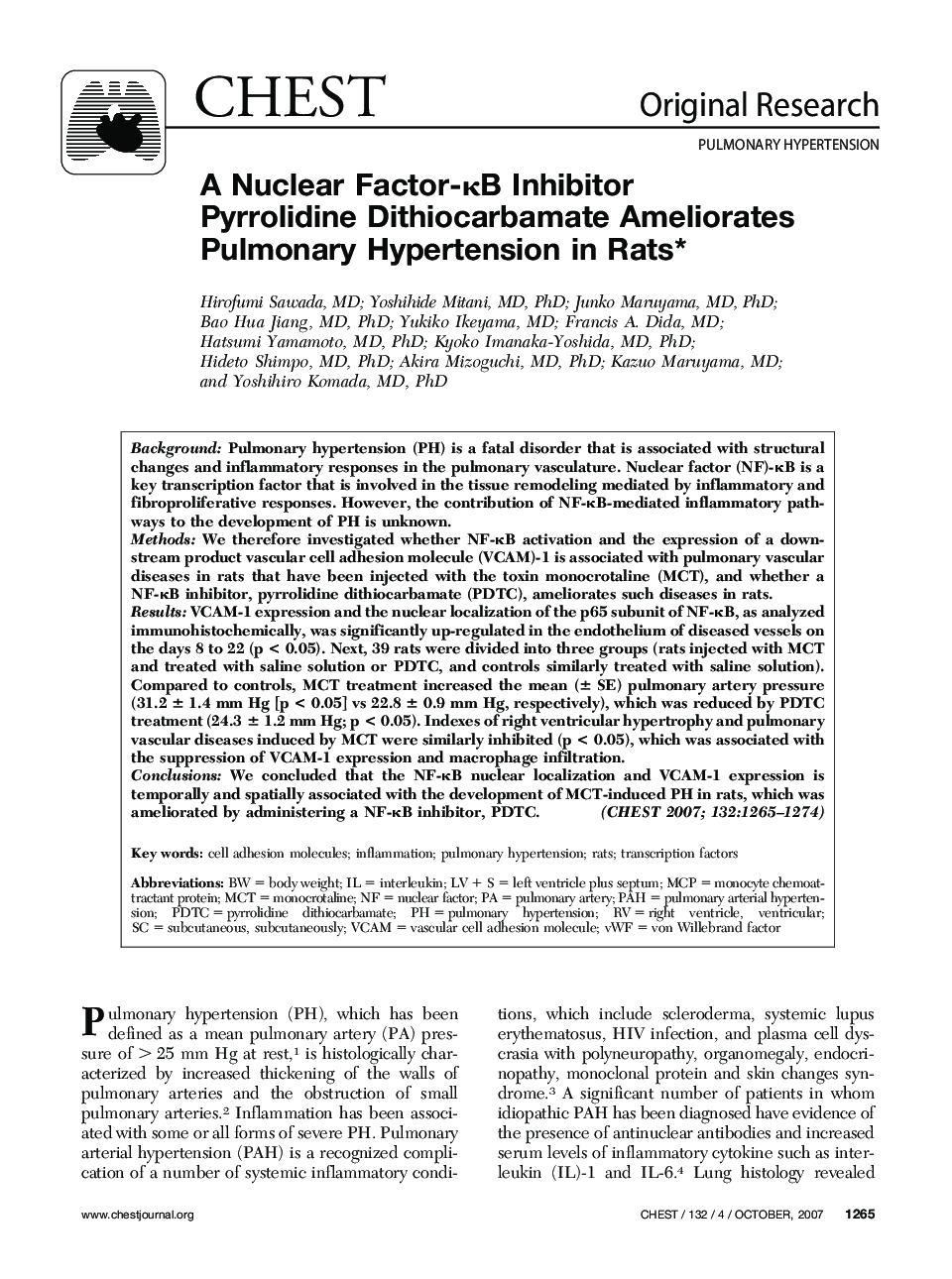| Article ID | Journal | Published Year | Pages | File Type |
|---|---|---|---|---|
| 2904604 | Chest | 2007 | 10 Pages |
BackgroundPulmonary hypertension (PH) is a fatal disorder that is associated with structural changes and inflammatory responses in the pulmonary vasculature. Nuclear factor (NF)-κB is a key transcription factor that is involved in the tissue remodeling mediated by inflammatory and fibroproliferative responses. However, the contribution of NF-κB-mediated inflammatory pathways to the development of PH is unknown.MethodsWe therefore investigated whether NF-κB activation and the expression of a downstream product vascular cell adhesion molecule (VCAM)-1 is associated with pulmonary vascular diseases in rats that have been injected with the toxin monocrotaline (MCT), and whether a NF-κB inhibitor, pyrrolidine dithiocarbamate (PDTC), ameliorates such diseases in rats.ResultsVCAM-1 expression and the nuclear localization of the p65 subunit of NF-κB, as analyzed immunohistochemically, was significantly up-regulated in the endothelium of diseased vessels on the days 8 to 22 (p < 0.05). Next, 39 rats were divided into three groups (rats injected with MCT and treated with saline solution or PDTC, and controls similarly treated with saline solution). Compared to controls, MCT treatment increased the mean (± SE) pulmonary artery pressure (31.2 ± 1.4 mm Hg [p < 0.05] vs 22.8 ± 0.9 mm Hg, respectively), which was reduced by PDTC treatment (24.3 ± 1.2 mm Hg; p < 0.05). Indexes of right ventricular hypertrophy and pulmonary vascular diseases induced by MCT were similarly inhibited (p < 0.05), which was associated with the suppression of VCAM-1 expression and macrophage infiltration.ConclusionsWe concluded that the NF-κB nuclear localization and VCAM-1 expression is temporally and spatially associated with the development of MCT-induced PH in rats, which was ameliorated by administering a NF-κB inhibitor, PDTC.
